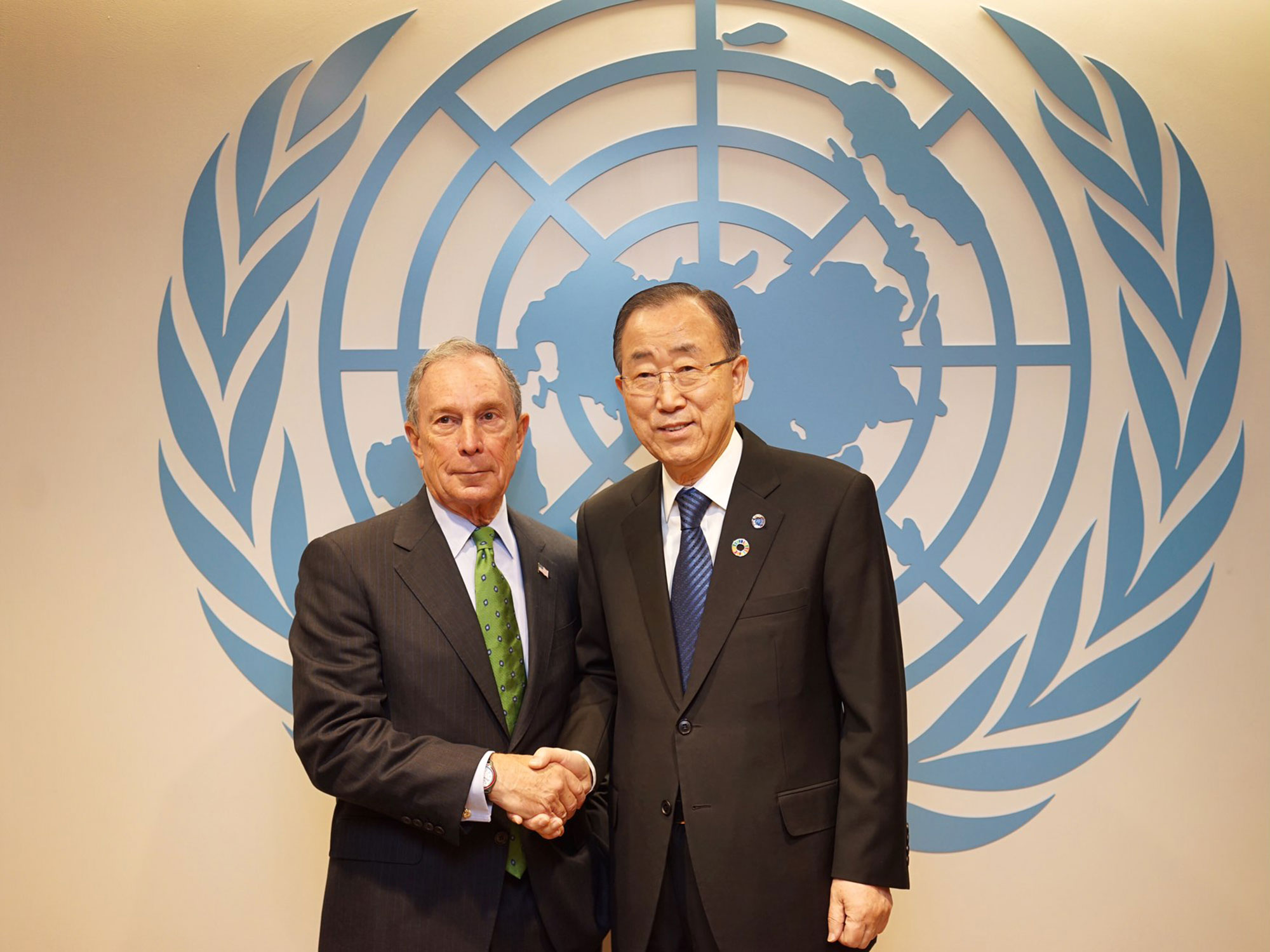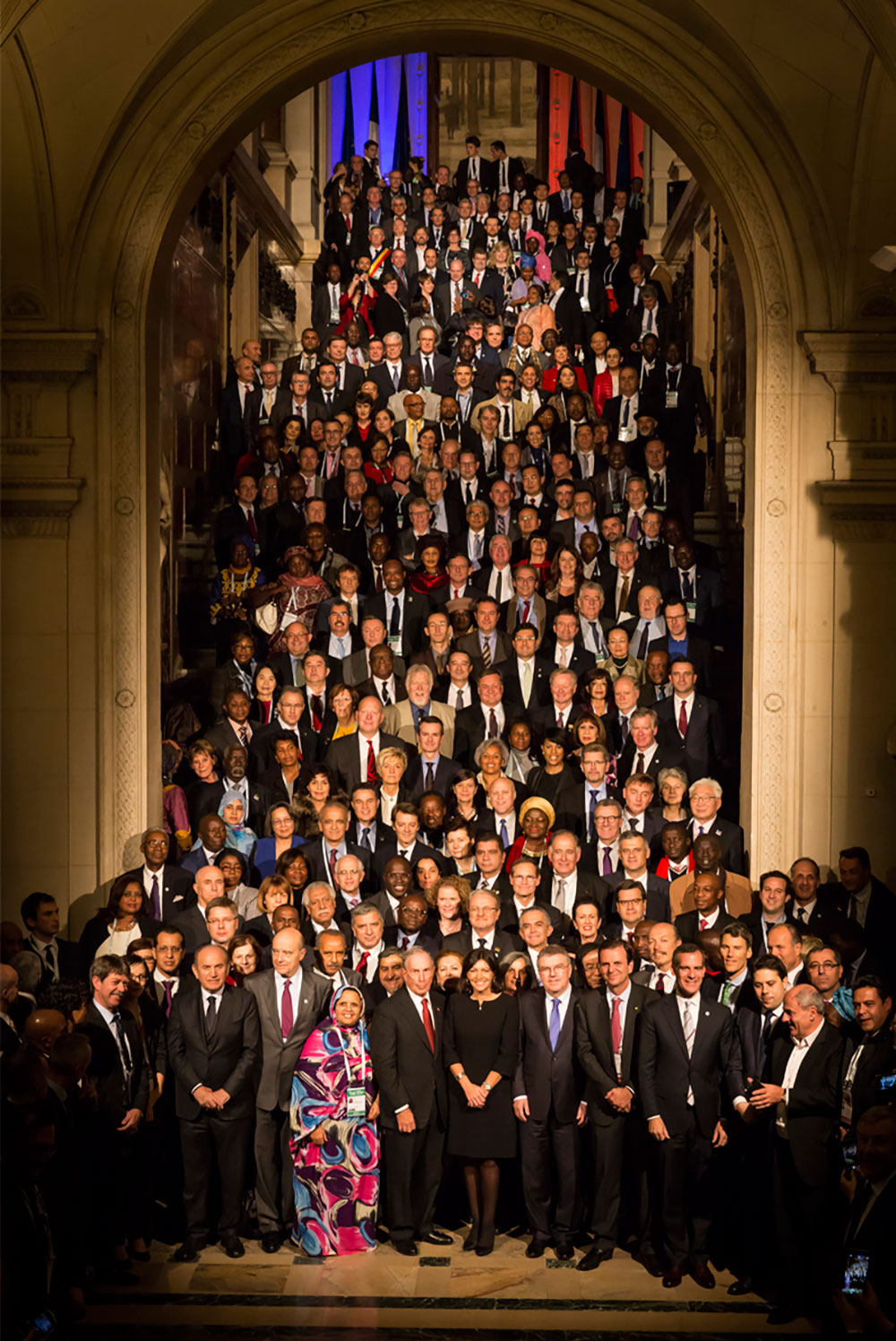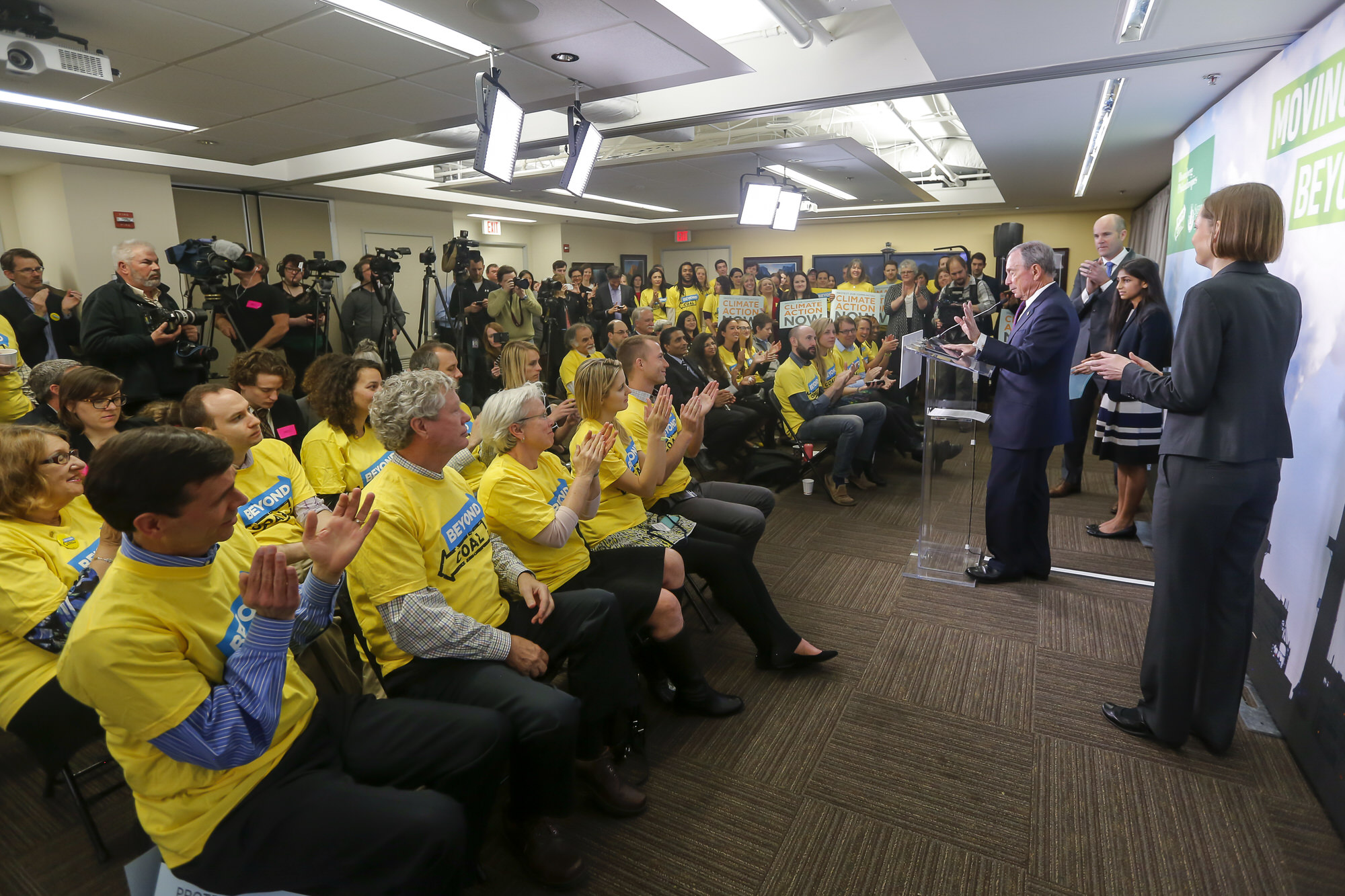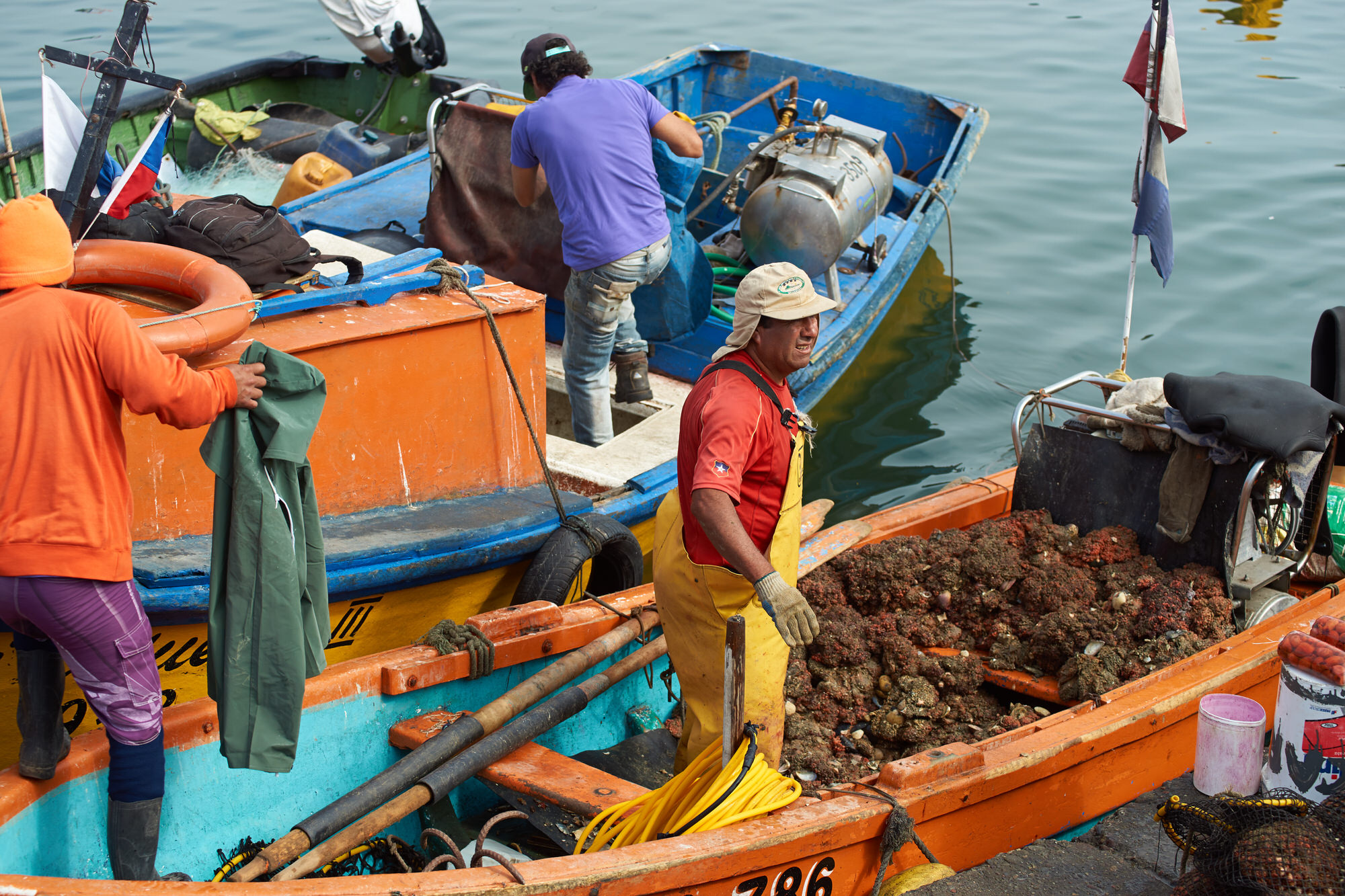Mayor Bloomberg was ahead of the curve on climate change as mayor of New York, reducing New York’s carbon footprint by 19 percent. He continues to put not only his name, but his significant resources behind efforts on climate change.
The Honorable Joseph Biden
Vice President of the United States
Helping cities set public goals, take action, and measure progress in combating climate change
For the first time ever, cities are publicly setting goals and measuring climate progress in the same standardized way as nations through the Compact of Mayors, a Bloomberg Philanthropies initiative launched with UN Secretary-General Ban Ki-moon in 2014.
- In a little over a year, the Compact of Mayors grew to include more than 500 cities representing more than 425 million citizens.
- Together with Paris Mayor Anne Hidalgo, Mike Bloomberg convened more than 1,000 city leaders (including 446 mayors) from around the world at the Climate Summit for Local Leaders during COP21, putting mayors at the center of climate diplomacy.
The Paris summit succeeded where past attempts had failed, in part because cities and businesses had a seat at the table for the first time.
Mike Bloomberg
- At the summit, mayors signed onto the Paris Declaration, a commitment by the more than 500 cities present to deliver up to 3.7 gigatons of greenhouse gas emissions reductions annually by 2030—equivalent to more than the annual emissions of the US and EU at today’s levels.
Our Impact

1,000+
leaders signed the Paris Declaration, committing 500 cities to 3.7 gigatons of greenhouse gas emissions reductions by 2030
By the Numbers
70%
Cities account for 70% of global carbon emissions
Supporting practical state-based solutions to ensure a 21st-century energy system that is clean, affordable, and reliable
Bloomberg Philanthropies’ Clean Energy Initiative aims to support states’ transition beyond coal to clean, profitable energy systems that will reduce air pollution, protect public health, combat global warming, and drive economic growth and competitiveness for decades to come.
The Clean Energy Initiative funds technical support and research that helps states take advantage of new clean energy options, such as wind and solar, while curbing climate change. With the help of Bloomberg Philanthropies, states will be able to reduce their carbon emissions, move away from coal, and help the United States lead the world on ambitious climate action.
- To date, 232 power plants have announced their retirement as a result of the Sierra Club’s Beyond Coal campaign; the United States now leads the world in reducing carbon pollution.
- At the same time, state governments are charting their energy future with billions of dollars in energy infrastructure improvements over the coming decades.
UPDATE:
By the end of 2017, the Beyond Coal campaign will have halved the amount of electric power produced by coal in the United States by closing coal plants around the country, replacing their capacity with cleaner energy.
Limiting damage caused by overfishing and protecting vital marine areas
Oceans are home to some of the most beautiful and diverse ecosystems on the planet and have tremendous potential for scientific research. They also provide a source of food and income to billions of people. Climate change, pollution, habitat destruction, and overfishing threaten ocean health around the globe.
The Bloomberg Philanthropies Vibrant Oceans Initiative works in Brazil, Chile, and the Philippines to restore and protect fisheries as a vital oceans resource. The Initiative takes a multi-pronged approach to protect oceans, winning national policies and engaging local communities to stop the most destructive fishing practices, and creating financial incentives to support sustainable fishing.
This year, Bloomberg Philanthropies also worked through partners such as Coral Reef Alliance, Pew Charitable Trusts’ Global Oceans Legacy, and Oceans 5 to support efforts to secure protection of critical marine areas across the globe.
Some recent updates include:
- The Chilean government announced a new ocean reserve that will be the largest marine park in the Americas, protecting a major area of biodiversity.
- Toledo City in the Philippines rejected a destructive project that would have flooded the Tañon Strait Seascape with mining waste, thus protecting the community’s livelihood and health.



